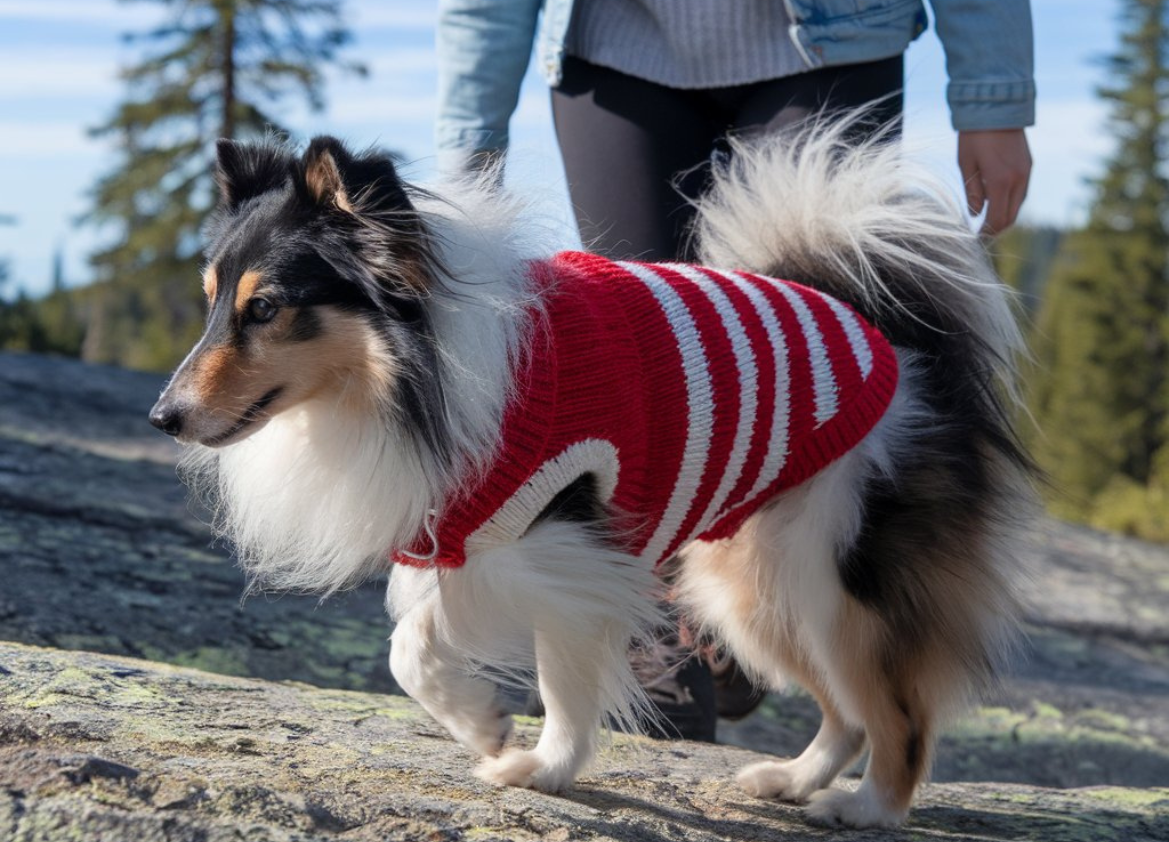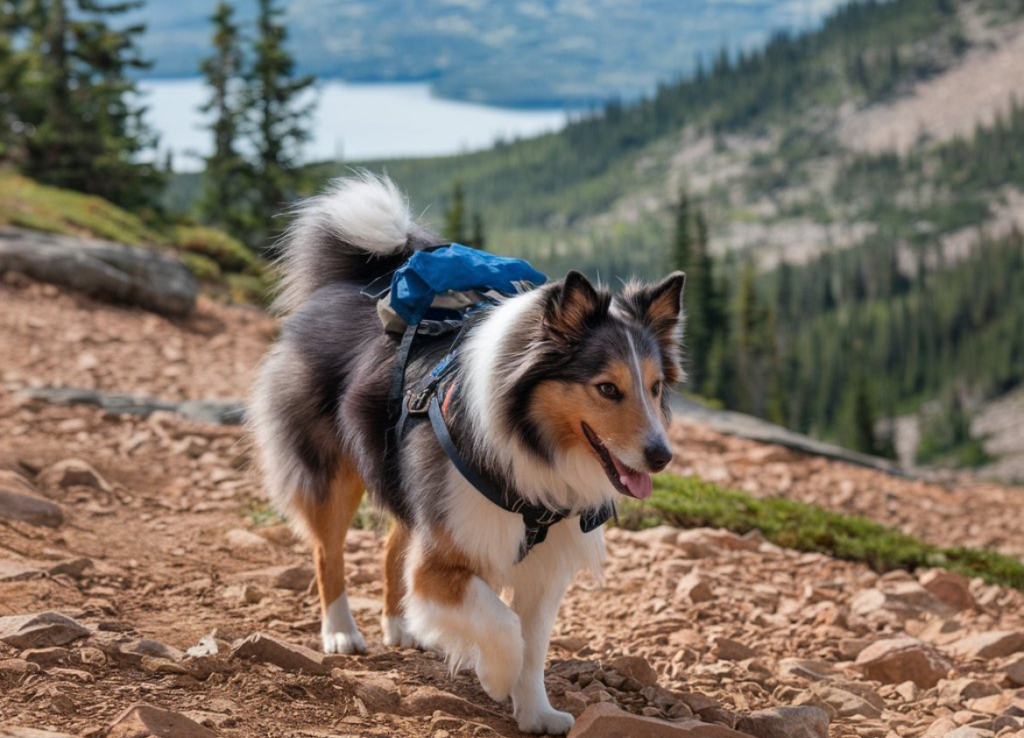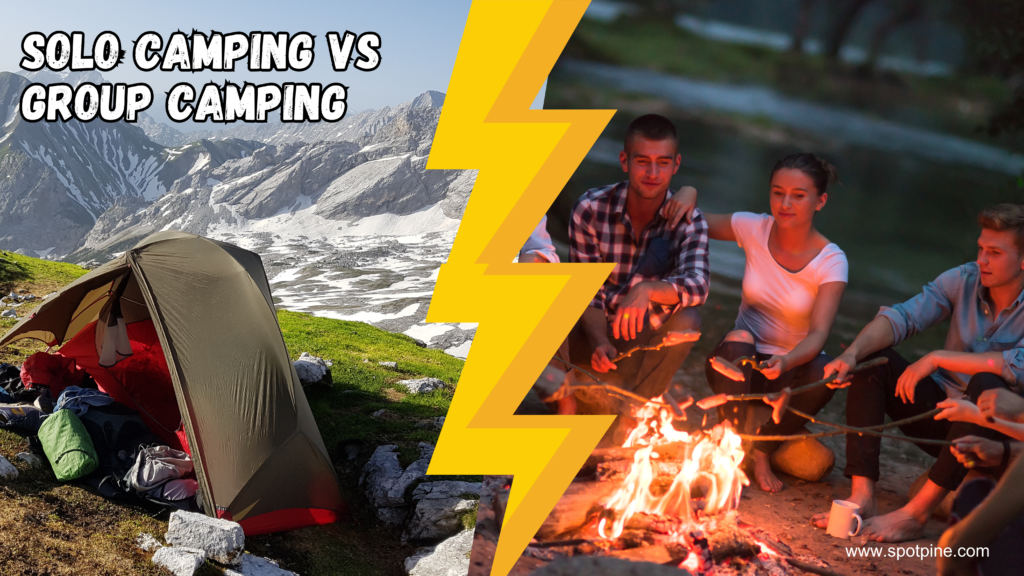Yes, Shelties make good hiking dogs. They are energetic and love adventures.
Shelties, short for Shetland Sheepdogs, are known for their agility and intelligence. Their small size and stamina make them great companions for long hikes. Shelties are loyal and eager to please. They bond closely with their owners, making them perfect for hiking trips.
Their double coat protects them from various weather conditions, ensuring they stay comfortable. They are also alert and quick learners, which helps in unfamiliar terrains. If you love hiking and want a furry friend to join you, a Sheltie might be the perfect match. In this post, we will explore why Shelties excel as hiking dogs and what to consider when taking them on your outdoor adventures.
Sheltie Breed Traits
The Shetland Sheepdog, known as the Sheltie, is an intelligent and loyal breed. These traits make Shelties great companions for outdoor activities like hiking. Below, we explore the key breed traits of Shelties in terms of physical characteristics and temperament.
Physical Characteristics
Shelties are small to medium-sized dogs, typically weighing between 15-25 pounds. Their compact size makes them easy to carry if needed.
They have a thick double coat that provides protection from various weather conditions. This coat is both beautiful and functional, keeping them warm in cold weather.
Shelties are known for their agility and endurance. They can handle long hikes with ease due to their athletic build.
Here is a quick overview of their physical traits:
| Trait | Details |
|---|---|
| Size | Small to Medium (15-25 pounds) |
| Coat | Thick double coat |
| Endurance | High |
| Agility | Excellent |
Temperament
Shelties are known for their intelligence and obedience. They learn commands quickly and follow them well.
They are very loyal and form strong bonds with their owners. This loyalty makes them great hiking partners, always staying close and attentive.
Shelties are also alert and aware of their surroundings. This alertness can be beneficial on the trails, keeping an eye out for potential hazards.
Here are some key temperament traits:
- Intelligent and obedient
- Loyal and affectionate
- Alert and aware
These traits make Shelties not only great family pets but also ideal hiking companions.
Energy Levels
Shelties are known for their high energy levels. These dogs are lively and always ready for action. Their active nature makes them great companions for outdoor activities, including hiking. Understanding their energy needs is crucial to ensure they remain happy and healthy.
Daily Exercise Needs
Shelties need regular exercise to stay fit. These dogs thrive on physical activities and mental stimulation. On average, they require at least one hour of exercise each day. This can include walks, playtime, or training sessions.
Meeting their daily exercise needs helps prevent boredom and destructive behavior. A well-exercised Sheltie is a happy Sheltie. Regular exercise also contributes to their overall health and well-being.
Suitability For Long Hikes
Shelties are well-suited for long hikes. Their high energy levels and endurance make them excellent hiking companions. They enjoy exploring new trails and terrains.
Before embarking on a long hike, ensure your Sheltie is in good health. Regular vet check-ups are essential. Also, consider their age and physical condition. Young and healthy Shelties can handle more strenuous hikes.
During hikes, bring enough water and snacks for your Sheltie. Keep them hydrated and energized. Monitor their behavior for signs of fatigue.
Shelties have a double coat that protects them in various weather conditions. However, be mindful of extreme temperatures. Plan your hikes during cooler parts of the day to avoid overheating.
With proper care and preparation, Shelties can enjoy long hikes and outdoor adventures. Their energy and enthusiasm make them perfect hiking partners.
Training And Obedience
Training and obedience are crucial for ensuring your Sheltie is a good hiking companion. Well-trained Shelties are easier to manage on trails, making hikes more enjoyable for both of you. Let’s explore the basics and advanced training tips to help your Sheltie become an excellent hiking dog.
Basic Commands
Basic commands form the foundation of your Sheltie’s training. These commands ensure your dog listens and responds promptly. Focus on teaching these essential commands:
- Sit: Start with the sit command. It’s simple but vital for control.
- Stay: Teach your Sheltie to stay in place. This is crucial for safety.
- Come: Ensure your dog returns to you when called. A must for off-leash hikes.
- Heel: Your Sheltie should walk beside you without pulling. This makes hiking easier.

Consistent practice is key. Use positive reinforcement like treats and praise. Keep training sessions short and fun to maintain your Sheltie’s interest.
Advanced Training For Hiking
Once your Sheltie masters basic commands, you can move on to advanced training. These skills are specific to hiking and outdoor activities:
- Trail Etiquette: Train your Sheltie to stay on the trail. This prevents disturbances to wildlife and plants.
- Off-Leash Control: Your dog should respond to commands even without a leash. This is essential for safe hiking.
- Recall: Strengthen the come command. Practice in various environments to ensure reliability.
- Emergency Commands: Teach commands like stop or wait. These can prevent accidents in unexpected situations.
- Endurance: Gradually increase your Sheltie’s stamina. Start with shorter hikes and build up to longer ones.
Advanced training requires patience and consistency. Use a mix of commands, rewards, and practice to reinforce learning. Make sure to keep your Sheltie engaged and motivated throughout the process.
Socialization Skills
Shelties, or Shetland Sheepdogs, are known for their friendly and social nature. Understanding their socialization skills is crucial for determining if they make good hiking dogs. Proper socialization ensures they interact well with other dogs and behave appropriately around strangers.
Interaction With Other Dogs
Shelties usually get along well with other dogs. Their herding instincts make them alert and responsive to their environment. They often enjoy playing and running with fellow canines, making them great hiking companions.
Here are some tips for ensuring positive interactions:
- Introduce your Sheltie to other dogs in a controlled setting.
- Observe their body language to avoid any signs of aggression.
- Reward calm and friendly behavior with treats or praise.
Consistency in socialization helps your Sheltie feel comfortable and confident. This results in enjoyable hikes without any unwanted confrontations.
Behavior Around Strangers
Shelties are usually reserved but polite around strangers. They may be cautious at first but warm up quickly once they feel safe. Proper training and socialization help them behave well in public settings.
Consider these strategies for improving your Sheltie’s behavior around strangers:
- Expose them to various environments and people from a young age.
- Encourage positive interactions with strangers using treats and praise.
- Teach them basic commands like “sit” and “stay” to manage their behavior.
A well-socialized Sheltie is less likely to bark or show fear. This makes your hiking experience more pleasant and stress-free.
Health Considerations
When considering taking your Sheltie on hikes, their health is crucial. Shelties, like all breeds, have specific health needs. Understanding these needs ensures a safe and enjoyable hiking experience.
Common Health Issues
Shelties are generally healthy, but they can face some health issues. Common problems include:
- Hip Dysplasia: This condition affects the hip joints and can cause pain.
- Collie Eye Anomaly: A genetic condition that affects eyesight.
- Hypothyroidism: An underactive thyroid gland that can lead to weight gain and lethargy.
- Allergies: Skin allergies and food sensitivities are common.
Preventive Measures
Taking preventive measures can help ensure your Sheltie stays healthy on hikes. Consider the following:
- Regular Vet Check-ups: Schedule annual vet visits to catch any health issues early.
- Proper Nutrition: Feed a balanced diet to support their energy levels.
- Exercise: Regular exercise keeps them fit and strengthens muscles.
- Weight Management: Maintain a healthy weight to reduce stress on joints.
- Hydration: Always carry water and offer it frequently during hikes.
By being mindful of these health considerations, you can help your Sheltie enjoy many happy and healthy hikes.
Gear And Equipment
Are you planning to take your Sheltie on a hiking adventure? Having the right gear and equipment is essential for a safe and enjoyable outing. Here, we will explore the necessary items to ensure your Sheltie has a great time on the trails.
Essential Gear
Before hitting the trails, make sure you have all the essential gear for your Sheltie. Proper equipment ensures safety and comfort during your hike.
- Leash and Harness: A sturdy leash and a comfortable harness are crucial. Shelties are active and might get excited on the trail. A harness provides better control and reduces strain on their neck.
- Collapsible Water Bowl: Keep your Sheltie hydrated with a collapsible water bowl. These bowls are lightweight and easy to carry.
- Dog Boots: Protect your Sheltie’s paws from rough terrain with dog boots. These boots prevent injuries from sharp rocks or hot surfaces.
- ID Tags: Ensure your Sheltie wears ID tags with your contact information. This is important in case they wander off.
- First Aid Kit: Carry a basic first aid kit for your Sheltie. Include items like bandages, antiseptic wipes, and tweezers.
Optional Accessories
While not essential, these accessories can enhance your Sheltie’s hiking experience. Consider bringing these items for added comfort and convenience.
- Dog Backpack: A dog backpack allows your Sheltie to carry their own supplies. Ensure the pack is lightweight and fits comfortably.
- Cooling Vest: In hot weather, a cooling vest helps keep your Sheltie cool. These vests are soaked in water and provide relief from the heat.
- Reflective Gear: Reflective vests or collars improve visibility during low-light conditions. This is especially useful for early morning or late evening hikes.
- Portable Dog Bed: A portable dog bed offers a comfortable resting spot during breaks. This is particularly useful for longer hikes.
- Dog Sunscreen: Protect your Sheltie from sunburn with dog-safe sunscreen. Apply it to areas with less fur, like the nose and ears.
Having the right gear and equipment ensures your Sheltie enjoys the hike. Proper preparation leads to a safe and fun adventure.
Weather Adaptability
When considering if Shelties make good hiking dogs, one important factor is their weather adaptability. Shelties are known for their beautiful double coat, which can handle various weather conditions. Let’s explore how they cope in both hot and cold weather.
Hot Weather
Shelties have a thick double coat that can be a challenge in hot weather. To keep them comfortable:
- Hydrate: Always provide plenty of fresh water.
- Shade: Ensure they have access to shade.
- Timing: Hike during cooler parts of the day, such as early morning or late evening.
Be vigilant for signs of heat exhaustion, like excessive panting or lethargy. Their coat can insulate heat, making them prone to overheating. Regular breaks and a slower pace can help manage this.
Cold Weather
In cold weather, Shelties excel due to their double coat. Their fur provides excellent insulation against the cold. Here are some tips to ensure their safety:
- Layer Up: If temperatures drop significantly, consider a dog jacket.
- Paw Care: Protect their paws from ice and salt with booties or paw balm.
- Dry Off: After the hike, dry their coat to prevent any chill.
Shelties enjoy the brisk air and seem energized by cooler temperatures. Their coat keeps them warm, but always monitor for signs of discomfort or frostbite, especially on their ears and paws.

Trail Etiquette
Hiking with your Sheltie can be a rewarding experience. But it’s important to follow proper trail etiquette. This ensures safety and enjoyment for everyone. Here are some key points to keep in mind.
Leash Laws
Many trails have strict leash laws. Always check the regulations before you go. A leash keeps your Sheltie safe and prevents them from disturbing wildlife. It also ensures they do not bother other hikers. A 6-foot leash is usually recommended. It gives your dog freedom to explore while staying under control. Carry an extra leash in case the first one breaks.
Leave No Trace Principles
Following the Leave No Trace principles is essential. This means you should clean up after your Sheltie. Carry biodegradable bags to pick up waste. Dispose of it in designated trash bins. Do not leave waste bags on the trail. Avoid letting your Sheltie dig holes. This can damage plant life and disturb habitats. Stay on marked trails to protect the environment.
- Pack out all waste
- Stay on designated trails
- Respect wildlife
| Principle | Description |
|---|---|
| Pack Out Waste | Dispose of waste properly |
| Stay on Trails | Prevent damage to nature |
| Respect Wildlife | Do not disturb animals |
Shelties make great hiking dogs. They are energetic and love the outdoors. Their intelligence and loyalty make them easy to train. They adapt well to different terrains. With proper care, they can handle long hikes. Always carry water and snacks for your Sheltie.
Keep an eye on their paws for any injuries. Enjoying nature with your Sheltie can be a rewarding experience. So, lace up your boots and hit the trails together. Happy hiking!
FAQs:
Are Shelties Good For Hiking?
Yes, Shelties are excellent hiking companions. They are energetic, agile, and love outdoor activities.
Can Shelties Handle Long Hikes?
Shelties can handle long hikes with proper training. Their stamina and endurance make them suitable for extended outdoor adventures.
Do Shelties Need Special Gear For Hiking?
Yes, Shelties benefit from wearing harnesses and dog boots. These protect their paws and ensure their safety.
How Do Shelties Behave On Trails?
Shelties are well-behaved and obedient on trails. They follow commands and enjoy exploring new terrains.



